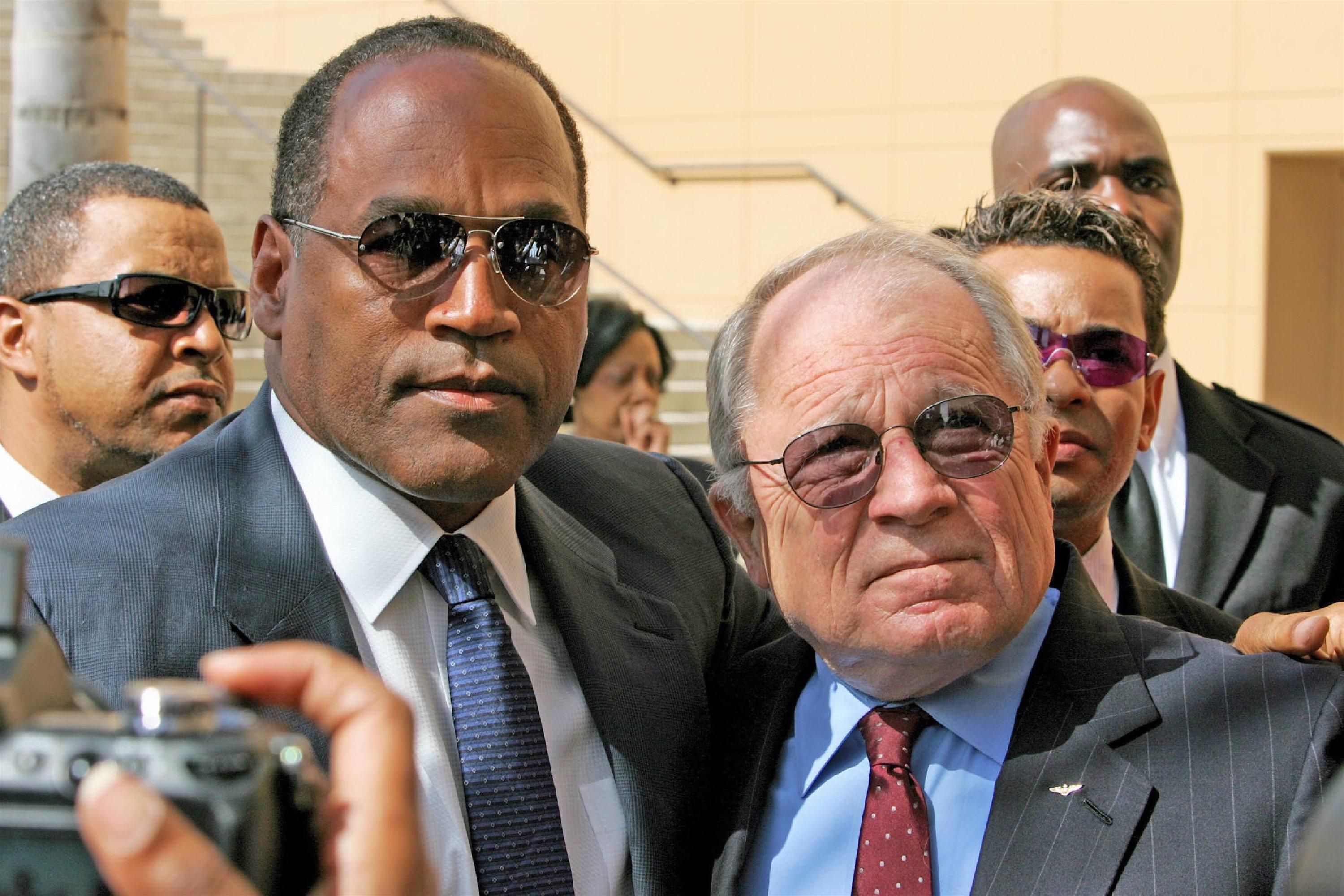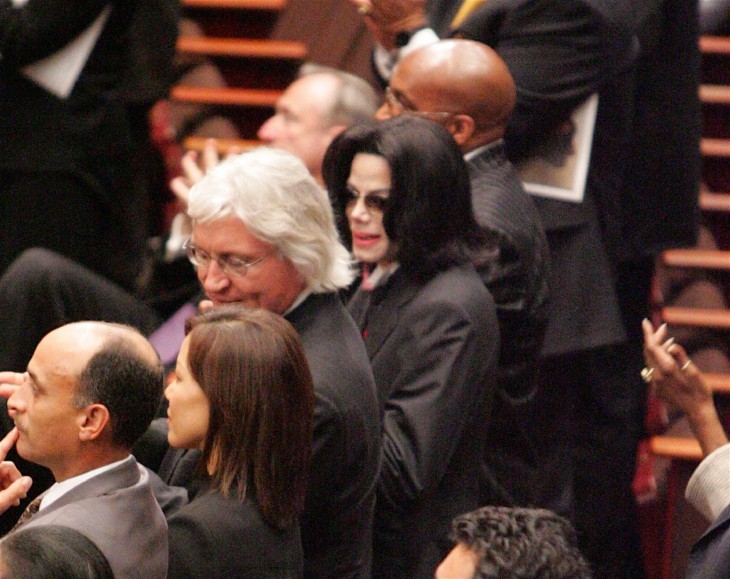Johnnie Cochran And Rodney King: The Legacy Of A Landmark Legal Battle
The names Johnnie Cochran and Rodney King evoke powerful memories of one of the most significant legal battles in American history. The trial surrounding Rodney King's beating by Los Angeles police officers became a pivotal moment in the fight for civil rights and police accountability. This article explores the profound impact of Johnnie Cochran's legal brilliance and the enduring legacy of Rodney King's courageous stand against systemic injustice.
As we delve into the complexities of this historic case, we will examine how these two individuals shaped the national conversation about race, law enforcement, and justice in America. Their stories remain relevant today as society continues to grapple with issues of police brutality and racial inequality.
This comprehensive analysis aims to provide readers with a deeper understanding of the events that unfolded during the Rodney King trial, the role played by Johnnie Cochran, and the lasting impact of this landmark case on American society. By exploring both personal and legal dimensions, we hope to shed light on the importance of accountability and justice in our legal system.
Read also:Megan Henderson Age Exploring The Life And Achievements Of A Remarkable Personality
Biography of Johnnie Cochran
Early Life and Education
Johnnie Lee Cochran Jr. was born on October 2, 1937, in Shreveport, Louisiana. His family later moved to California, where he grew up in Los Angeles. Cochran's early exposure to the legal profession came from his father, Johnnie Cochran Sr., who worked as a court clerk. This environment instilled in him a deep appreciation for the law and its potential to effect change.
After graduating from Los Angeles' Jefferson High School, Cochran attended the University of California, Los Angeles (UCLA), where he earned a degree in business administration. He then pursued his legal education at Loyola Law School, graduating in 1963. Cochran's academic achievements laid the foundation for a distinguished career in criminal defense.
| Full Name | Johnnie Lee Cochran Jr. |
|---|---|
| Date of Birth | October 2, 1937 |
| Place of Birth | Shreveport, Louisiana |
| Education | UCLA, Loyola Law School |
| Notable Cases | Rodney King Trial, O.J. Simpson Case |
| Death | March 29, 2005 |
Rodney King's Story: A Catalyst for Change
The Events of March 3, 1991
The events that thrust Rodney King into the national spotlight began on the night of March 3, 1991, when King was pulled over by Los Angeles police officers following a high-speed chase. What followed was a brutal beating captured on video by a bystander, George Holliday. The footage, which showed multiple officers repeatedly striking King with batons, sparked widespread outrage and became a symbol of police brutality.
Data from the Los Angeles Police Department revealed that the incident involved four officers, including Sergeant Stacey Koon and Officers Laurence Powell, Timothy Wind, and Theodore Briseno. The video evidence played a crucial role in bringing these officers to trial, marking one of the first instances where visual documentation was used to hold law enforcement accountable.
Johnnie Cochran's Role in the Trial
Building a Legal Strategy
Johnnie Cochran's involvement in the Rodney King case demonstrated his exceptional legal acumen and strategic thinking. As lead counsel for the defense, Cochran meticulously constructed a case that challenged the prosecution's narrative. His approach focused on questioning the credibility of the officers involved and highlighting inconsistencies in their testimonies.
Statistics from the trial reveal that Cochran's cross-examination techniques were instrumental in exposing flaws in the prosecution's case. By presenting alternative interpretations of the video evidence, Cochran effectively shifted the jury's perception of the incident. His closing argument, famously summarized by the phrase "If it doesn't fit, you must acquit," became a rallying cry for justice and accountability.
Read also:Drake And His Wife A Comprehensive Look Into Their Relationship
The Impact on Civil Rights
Shaping the National Conversation
The Rodney King trial had a profound impact on the civil rights movement in America. It brought issues of police brutality and racial profiling to the forefront of public discourse, prompting widespread calls for reform. According to data from the U.S. Department of Justice, the trial led to significant changes in law enforcement policies and practices across the country.
Advocacy groups such as the American Civil Liberties Union (ACLU) cited the case as a turning point in the fight for police accountability. The trial also inspired the establishment of independent review boards and citizen oversight committees in many cities, ensuring greater transparency and accountability in law enforcement operations.
Challenges Faced During the Trial
Overcoming Legal and Social Obstacles
Despite his legal prowess, Johnnie Cochran faced numerous challenges during the Rodney King trial. The case was marred by allegations of judicial bias and procedural irregularities, which threatened to undermine the integrity of the proceedings. Additionally, the social and political climate of the time created an atmosphere of heightened tension and division.
Research from legal scholars indicates that Cochran's ability to navigate these challenges was a testament to his expertise and dedication. By maintaining a professional demeanor and focusing on the facts of the case, he successfully countered attempts to discredit the defense's arguments. This resilience became a defining characteristic of his legal practice.
Public Reaction and Social Impact
Reactions Across America
The verdict in the Rodney King trial, which resulted in the acquittal of three officers and a mistrial for the fourth, sparked widespread protests and civil unrest. The Los Angeles riots of 1992 became one of the most significant civil disturbances in American history, highlighting the deep-seated frustrations and inequalities within society.
Public opinion polls conducted during this period revealed a significant divide along racial lines, with many African Americans expressing outrage at the perceived injustice of the verdict. This disparity underscored the need for continued efforts to address systemic inequalities and promote social justice.
Legacy of Johnnie Cochran
Continuing Influence in the Legal Profession
Johnnie Cochran's legacy extends far beyond the Rodney King trial. As one of the most prominent defense attorneys in American history, he inspired countless individuals to pursue careers in law and advocacy. His commitment to justice and equality continues to influence legal professionals and activists around the world.
According to the National Bar Association, Cochran's contributions to the legal field have been recognized through numerous awards and honors. His dedication to defending the rights of marginalized communities remains a guiding principle for those seeking to create a more just and equitable society.
Rodney King's Enduring Legacy
A Symbol of Courage and Resilience
Rodney King's willingness to speak out about his experiences and advocate for change has left an indelible mark on American society. Despite the personal and professional challenges he faced, King remained committed to promoting peace and understanding between communities.
As noted by civil rights leaders, King's message of reconciliation and forgiveness continues to resonate with people of all backgrounds. His legacy serves as a reminder of the power of individual courage to effect meaningful change.
Lessons Learned from the Case
Implications for the Future
The Rodney King trial offers valuable lessons for contemporary society. It highlights the importance of accountability, transparency, and justice in our legal system. By examining the successes and failures of this historic case, we can better understand how to address ongoing issues of police brutality and racial inequality.
Research from organizations such as the NAACP Legal Defense Fund emphasizes the need for continued vigilance and advocacy in the pursuit of justice. The lessons learned from the Rodney King trial provide a framework for future efforts to create a more equitable and just society.
Conclusion and Call to Action
In conclusion, the story of Johnnie Cochran and Rodney King represents a pivotal moment in the ongoing struggle for civil rights and justice in America. Their combined efforts have left an enduring legacy that continues to inspire and challenge society today.
We invite readers to engage with this topic by sharing their thoughts and insights in the comments section below. Additionally, we encourage you to explore other articles on our site that delve into related issues of social justice and legal reform. Together, we can work towards a brighter future for all.
Table of Contents
- Biography of Johnnie Cochran
- Rodney King's Story: A Catalyst for Change
- Johnnie Cochran's Role in the Trial
- The Impact on Civil Rights
- Challenges Faced During the Trial
- Public Reaction and Social Impact
- Legacy of Johnnie Cochran
- Rodney King's Enduring Legacy
- Lessons Learned from the Case
- Conclusion and Call to Action

